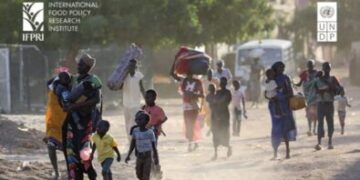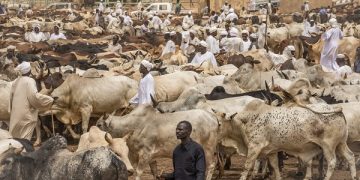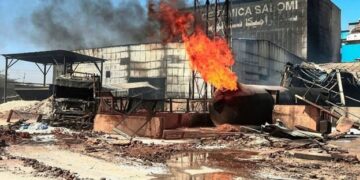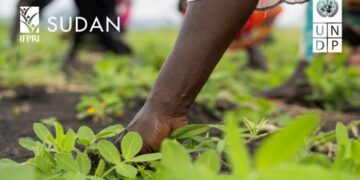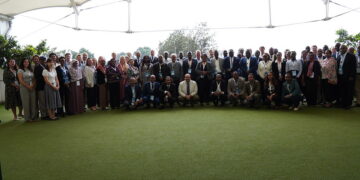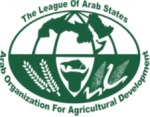Eighteen months of war have deeply affected urban households in Sudan: 31 percent have been displaced, full-time employment has plummeted by half, over 70 percent of the urban households in Sudan had all or some of school-aged kids stop attending school, and only one out of seven urban households can access full health services—concluded a […]
Sustainable livestock development in Sudan: Challenges, opportunities, and policy priorities
Livestock is a crucial component of Sudan's national economy, making significant contributions to poverty alleviation and food security. However, despite the sector's importance, the country has not conducted a comprehensive livestock census since 1975, leaving it with outdated and often unreliable data. Discrepancies between official statistics and field observations highlight the need for updated and […]
We Need to Know the Economic Impacts of Sudan’s Ongoing Conflict
A recent publication featured in Nature Human Behavior on May 6, 2024, delves into the severe socioeconomic impacts of the ongoing conflict in Sudan. Since the conflict between the Sudan Armed Forces (SAF) and the Rapid Support Forces (RSF) began on April 15, 2023, in Khartoum, it has spread across the country. The humanitarian toll […]
Livelihoods in Sudan amid armed conflict: Evidence from a national rural household survey
A recent report published by IFPRI and UNDP reveals the severe socioeconomic impacts of the ongoing conflict on rural households in Sudan. The survey behind the report, which was conducted between November 2023 and January 2024, highlights severe disruptions in income, inadequate housing, and disparities in access to essential services such as water, electricity, and […]
مؤتمر: استكشاف أبعاد الصراع في السودان – رؤى بحثية وتداعيات السياسات
الثاني والعشرون من مارس 2024 هالة أبوشامة، خالد صديق، أوليفر كيروي، مصعب أحمد، بول دوروش منذ اندلاع الحرب في أبريل 2023، عانى ملايين الأشخاص في السودان من فقدان سبل العيش وتدمير البنية التحتية وتعطيل الخدمات الأساسية. ومع استمرار الحرب، يواجه السودان أكبر أزمة نزوح في العالم – مع نزوح 6.5 مليون نازح داخليا ودفع […]
